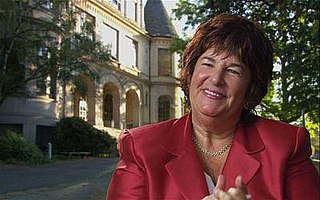A Quote by Gary Chapman
Emotions are our spontaneous response to life. We have these emotions, but if the emotion is a negative emotion, then I have a choice to say, "I am feeling sad tonight because this happened, but I am not going to let my sadness keep me from engaging my wife in conversation. "
Related Quotes
Some people say, "Sometimes I have violent thoughts, what can I do?" So I say, "Well, have them!" Cos we should not try to control ourselves. It's very bad to control ourselves in this sense. If you have any emotion at all, if its a bad emotion or good emotion, think about it, you should just understand that you have those emotions. And it's good because we are people and we have all these emotions. And the result of that is you would become more and more peaceful. If you don't let those emotions be inside of you then you become extremely violent.
A great emotion is too selfish ; it takes into itself all the blood of the spirit, and the congestion leaves the hands too cold to write. Three sorts of emotion produce great poetry - strong but quick emotions, seized upon for art as soon as they have passed, but not before they have passed ; strong and deep emotions in their remembrance along time after ; and false emotions, that is to say, emotions felt in the intellect. Not insincerity, but a translated sincerity, is the basis of all art.
Understand that all emotions serve you. Those you once thought of as negative emotions are merely calls to action. For example, if you feel frustrated it means that you believe things could be better, and they're not. This is a call to action telling you there's something you must do to make this better now. This "negative" emotion is actually a gift if you use it effectively.
I believe that the best way to create good living conditions for any animal, whether it's a captive animal living in a zoo, a farm animal or a pet, is to base animal welfare programs on the core emotion systems in the brain. My theory is that the environment animals live in should activate their positive emotions as much as possible, and not activate their negative emotions any more than necessary. If we get the animal's emotions rights, we will have fewer problem behaviors... All animals and people have the same core emotion systems in the brain.
My research has shown me that when emotions are expressed-which is to say that the biochemicals that are the substrate of emotion are flowing freely-all systems are united and made whole. When emotions are repressed, denied, not allowed to be whatever they may be, our network pathways get blocked, stopping the flow of the vital feel-good, unifying chemicals that run both our biology and our behavior.
Self-discipline, although difficult, and not always easy while combating
negative emotions, should be a defensive measure. At least we will be able to prevent the advent of negative conduct dominated by negative emotion. That is 'shila', or moral ethics. Once we develop this by familiarizing ourselves with it, along with mindfulness and conscientiousness, eventually that pattern and way of life will become a part of our own life.
In fiction you can make up everything to create the feeling. You can manufacture a story with whatever tools you want. With nonfiction you have to rely on what actually happened to describe what you're feeling. That's hard. You have to know what will feed into the emotion you're trying to convey. And that's hard because you don't necessarily know what causes your emotions.
If I had all the filmmakers that traumatized me when I was a little kid in this room, all I would say is, 'Thank you,' because they've made me who I am. As much as I say 'trauma,' it all comes from a place of love. The fact that I am feeling emotions at all based on a work is a wonderful thing, so I'm happy to be a part of that discussion.
Anytime you feel negative emotion, stop and say: 'Something is important here, otherwise I would not be feeling this negative emotion. What is it that I want?' And then simply turn your attention to what you DO want. In the moment that you turn your attention to what you want, the negative attraction will stop, and in the moment the negative attraction stops, the positive attraction will begin. And in that moment, your feelings will change from not feeling good to feeling good.



































